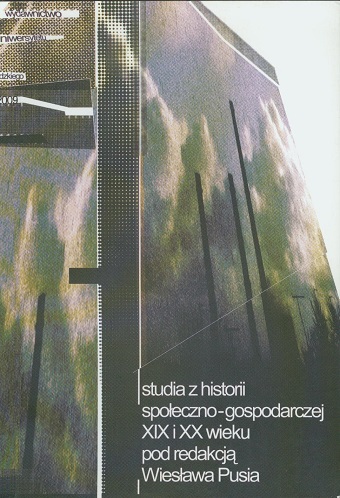Tytus Woyciechowski (1808–1879) – prekursor cukrownictwa na Lubelszczyźnie
DOI:
https://doi.org/10.18778/2080-8313.06.08Abstrakt
Tytus Woyciechowski (1808–1879) was born 31rd of December in Lviv. He finished Warsaw Highschool in 1826. Then he studied Administration at Warsaw University (1826–1828). Since 1828 he had started to managed Poturzyn Estate, causing economic prosperity in this area. He built a watermill, a distillery and sugar-factory. He introduced rotation of crops. Sheeps husbandry was famous in whole area. From 1828 till 1875 he increased the value of assets from 500 000 to 2 000 000 zloty. He was a father of sugar industry in Lublin Providence. He iniciated the first convention of sugar industry in Kingdom of Poland (1847).
He had a huge influence on the composer Fryderyk Chopin. He was his best friend and a reviewer. He composed himself. I they youth they created a piano duet. He was an addressee of 22 preserved letters from Fryderyk Chopin. He was known for his patriotic attitude. He was a participant of November Uprising (1830–1831) as a sub-lieutentant. He was honoured by the Golden Order of Virtuti Militari. He was a aide-de-camp of the commander-in-chief of the uprising. He was an active member of Agricultural Society (1858–1861). Supporter of renting the peasants. Before an outbreak of January Uprising (1863–1864) he performed one of the highest functions in political camp of Biali (Whites) (Biali – liberal-conservative political faction). A member of close management of Delegacja Narodowa and Dyrekcja Wiejska.
He married Alojza from Poletyło family in 1838 with whom he had four children: Joseph (1838–1863), Teresa (1840–1916), Maria (1843–?), and Władysław (1846–1886).
He died 23rd of March 1879 in Poturzyn. He was buried in Oszczów cemetery (poviat Tomaszów Lubelski, voivodeship Lublin).
Pobrania
Opublikowane
Jak cytować
Numer
Dział
Licencja

Utwór dostępny jest na licencji Creative Commons Uznanie autorstwa – Użycie niekomercyjne – Bez utworów zależnych 4.0 Międzynarodowe.









